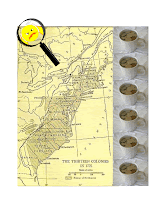In this section we learned:
We can know there is truth because contrary arguments are self-defeating.
Truth is what is real, because the definition of insanity is the loss of touch with reality.
We do not only know things scientifically because a person cannot prove through repeatable testing that we can only know things scientifically.
We can know that truth is absolute not relative because contrary arguments are self-defeating.
We can know we exist (I exist), as one must exist to ponder one’s possible nonexistence.
We can know the universe is real because real entities (us) can only exist within something real rather than something only imagined.
If we can know anything about the real world, even if all we know is that it is unknowable, then we have proved that we can in fact know something about the real world.
All philosophical and religious beliefs cannot be right (true) because philosophical and religious beliefs contradict each other and two contradictory claims cannot both be true.
What does the Bible say?
We expect people to tell the truth not only on a witness stand, but expect truth from each other. The Bible says, “‘These are things you shall do: Speak each man the truth to his neighbor; Give judgment in your gates for truth, justice, and peace; Let none of you think evil in your heart against your neighbor; And do not love a false oath. For all these are things that I hate,’ says the LORD.” - Zechariah 8:16-17
Philosophy may be defined as the study of and search after wisdom. Not only are the certain books within the Scriptures considered books of wisdom, but the Bible itself is an introduction to and revelation from our creator, the source of all wisdom. Therefore I’ll close this section with the well known admonition, “The fear of the LORD is the beginning of wisdom” Proverbs 9:10
Up next
Origins
What does the Bible say?
We expect people to tell the truth not only on a witness stand, but expect truth from each other. The Bible says, “‘These are things you shall do: Speak each man the truth to his neighbor; Give judgment in your gates for truth, justice, and peace; Let none of you think evil in your heart against your neighbor; And do not love a false oath. For all these are things that I hate,’ says the LORD.” - Zechariah 8:16-17
Philosophy may be defined as the study of and search after wisdom. Not only are the certain books within the Scriptures considered books of wisdom, but the Bible itself is an introduction to and revelation from our creator, the source of all wisdom. Therefore I’ll close this section with the well known admonition, “The fear of the LORD is the beginning of wisdom” Proverbs 9:10
Up next
Origins

No comments:
Post a Comment